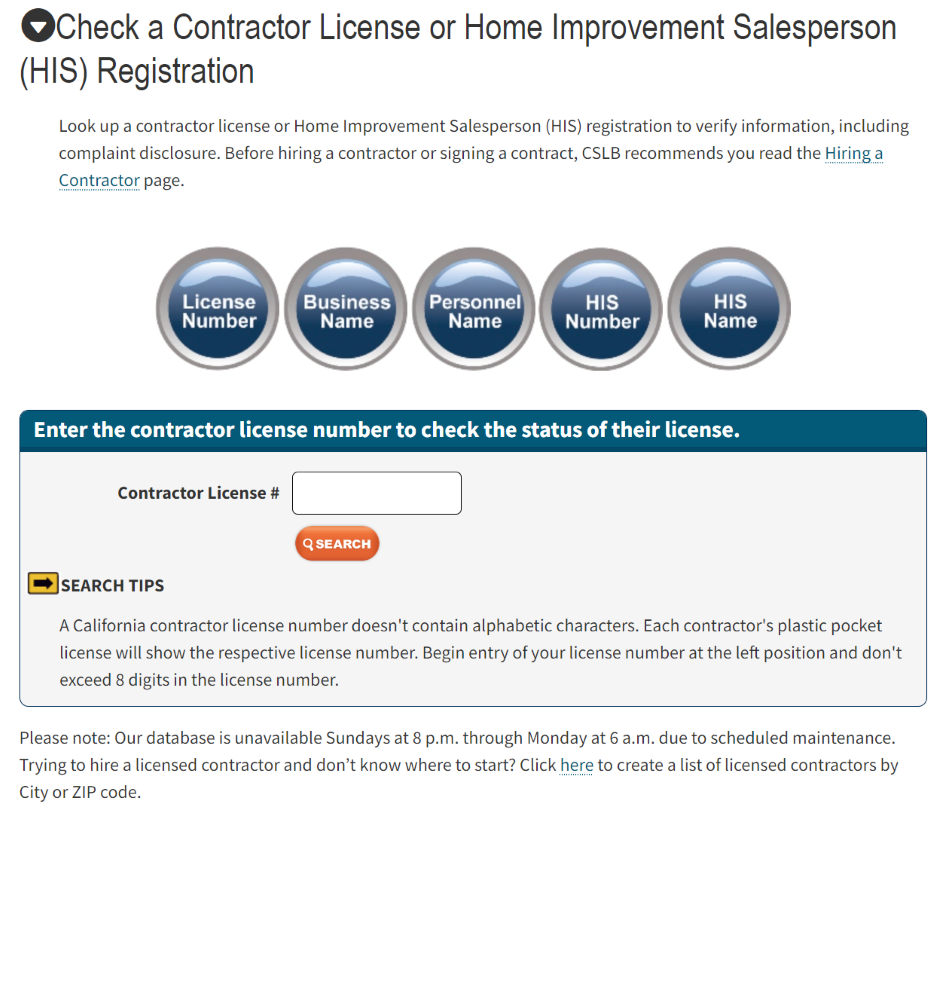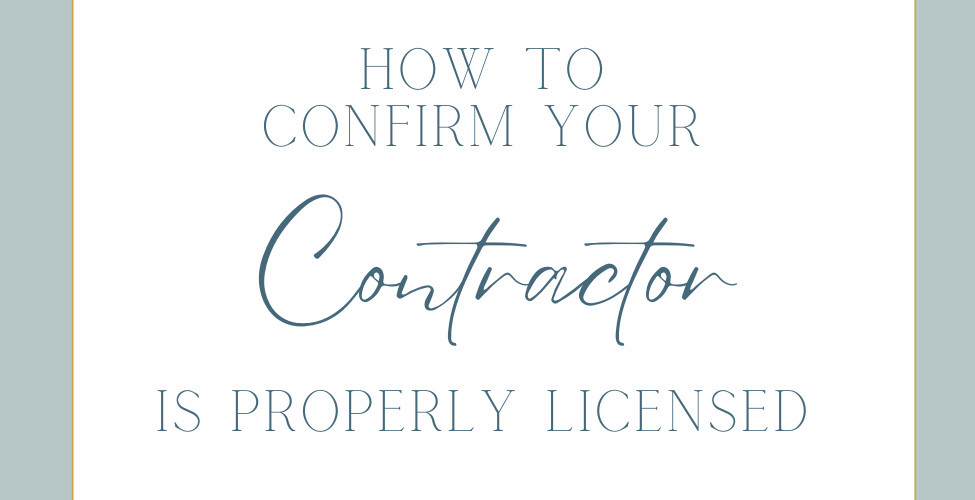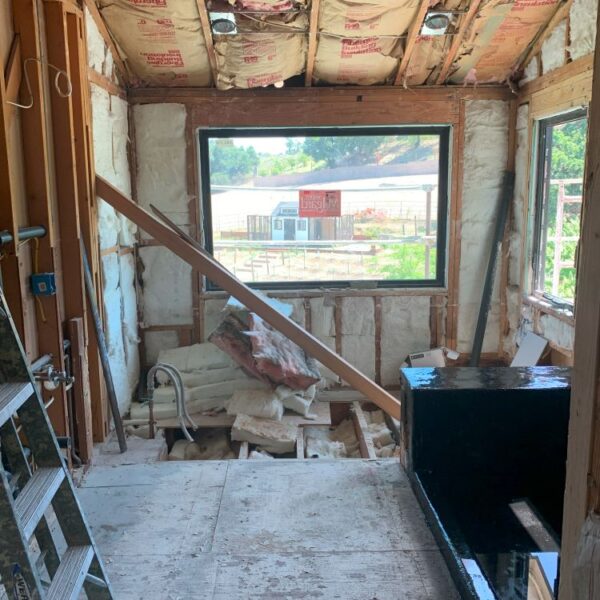Confirming that a contractor’s license is real is crucial for several reasons. Hiring an unlicensed contractor can lead to legal issues, including fines, and may void warranties or insurance claims on your property. A vaid license indicates that the contractor has met the required education, training, and experience to perform the work. It shows they understand building codes, safety regulations, and best practices in the industry. Here’s how you can verify that your contractor is properly licensed and ready to bring your dream space to life.
If you are in California go to the Contractor State License Board website here: https://www.cslb.ca.gov/OnlineServices/CheckLicenseII/CheckLicense.aspx
Ask for License Information
Start by requesting the contractor’s license number. A reputable contractor will have no issue providing this information upfront. In fact, a contractor is legally required to include their license number on all documents and advertising in California. If they aren’t licensed, they are also required to advertise that they aren’t (of course they won’t, that’s why they often will put a fake number or use a valid number they aren’t tied to). You can also search using their business name and their personal name. Make sure that the person you are dealing with is legally attached to the company they are working for or claim to be. I’ve seen employees of a company do side work claiming they are licensed just because they work for a licensed company, if they aren’t actually listed on the license, you aren’t protected.


Check with local Authorities
Use your state’s or municipality’s licensing board website to verify the license. Most licensing boards have online databases where you can enter the contractor’s license number or business name to confirm that it’s valid and up to date, when it expired or if it was revoked.

Verify the Scope of the License
Not all licenses are created equal. Ensure the contractor’s license covers the specific type of work you’re hiring them for, whether it’s plumbing, electrical, or general contracting. Just because your plumber says he can do electrical work, doesn’t mean he is licensed to do so. Some contractors may need multiple licenses for different types of projects. As long as the General Contractor you pay is fully licensed, bonded and insured you are covered but it’s still a good idea to make sure their plumber, electrician, etc are licensed as well.


Check for Complaints or Violations
While on the licensing board’s website, look for any records of complaints, violations, or disciplinary actions against the contractor. This can give you insight into their professionalism and reliability. You can also look up their personnel list and see if they were ever on a different license that has since been revoked. The number one complaint I hear from homeowners is that they overpaid their contractor because money was requested upfront and they paid.
Ask for Proof of Insurance
In addition to licensing, make sure your contractor has general liability and workers’ compensation insurance. Request a copy of their insurance certificates and confirm they’re current. This should also be listed on the CLSB website but it’s good to receive from the Insurance Provider directly. Licensed contractors are required to carry insurance, which protects you from being held liable if accidents, injuries, or damages occur on your property. Without it, you could be responsible for medical or repair costs.

Renovations are a significant financial commitment. Verifying a contractor’s license ensures that your investment is in the hands of a legitimate professional, reducing the risk of poor craftsmanship or delays that could result in additional expenses. Following these steps ensures you’re hiring a licensed, reputable contractor who meets industry standards for safety and quality.







Leave a Reply